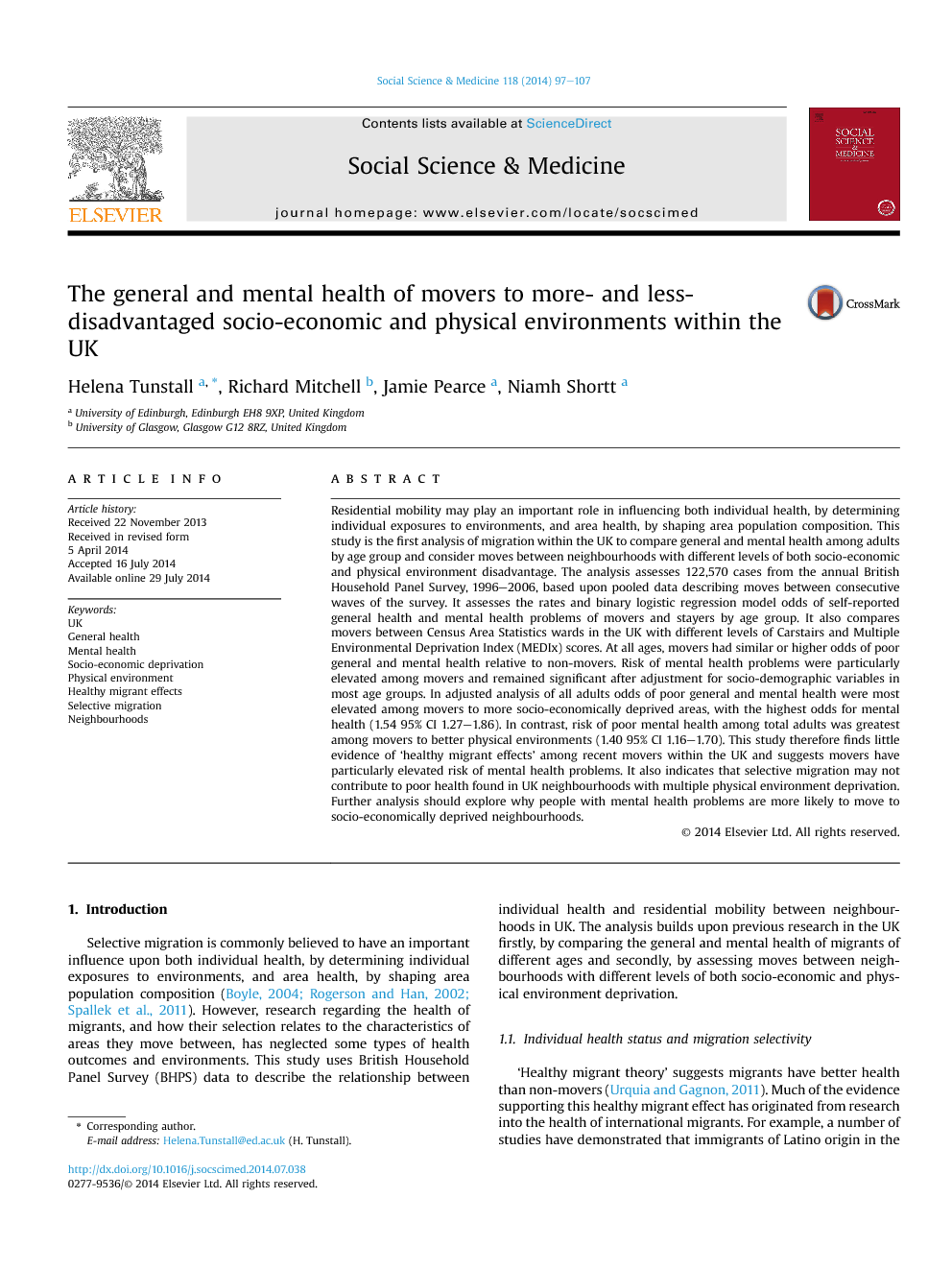ترجمه فارسی عنوان مقاله
بهداشت عمومی و روانی سیاست گذاران برای محیط های اجتماعی و اقتصادی و فیزیکی کمتر محروم در انگلستان
عنوان انگلیسی
The general and mental health of movers to more- and less-disadvantaged socio-economic and physical environments within the UK
| کد مقاله | سال انتشار | تعداد صفحات مقاله انگلیسی |
|---|---|---|
| 30954 | 2014 | 11 صفحه PDF |
منبع

Publisher : Elsevier - Science Direct (الزویر - ساینس دایرکت)
Journal : Social Science & Medicine, Volume 118, October 2014, Pages 97–107
ترجمه کلمات کلیدی
بریتانیا -
سلامت عمومی -
سلامت روانی -
محرومیت اجتماعی و اقتصادی -
محیط فیزیکی -
اثرات مهاجر سالم -
مهاجرت انتخابی -
عکسهای -
کلمات کلیدی انگلیسی
UK,
General health,
Mental health,
Socio-economic deprivation,
Physical environment,
Healthy migrant effects,
Selective migration,
Neighbourhoods,

